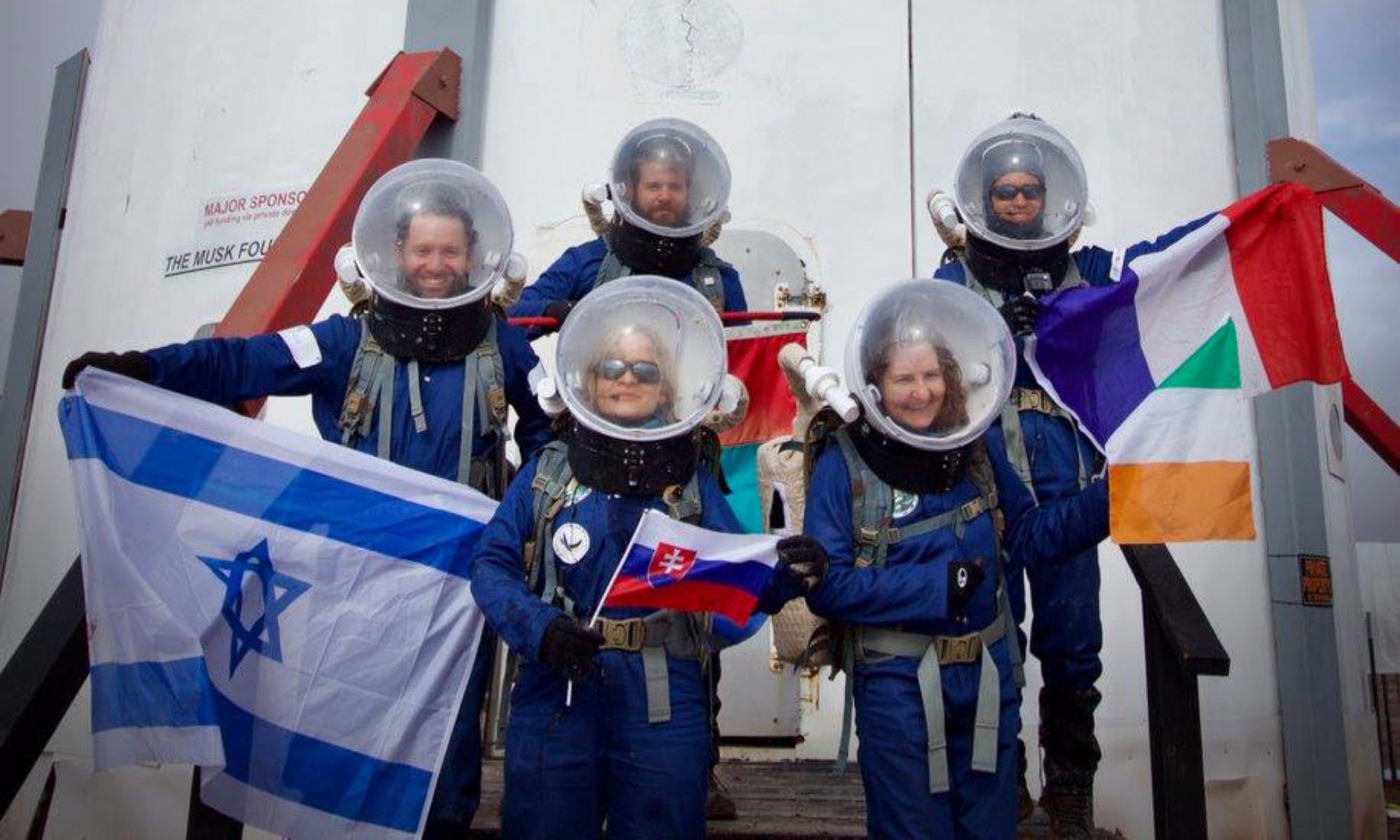Crew 280 Journalist Report 18-04-2023
Author: Núria Jar, Crew Journalist
While food, sleep, and extravehicular activity (EVA) protocols are now becoming the new routine for the Hypatia I crew members, they are still adjusting to the new living conditions. This morning, some crew members took a quick shower, a privilege on Mars, where water is a scarce resource on the Red Planet.
As the Hypatia I team is settling into its new home, some crew members have already started to set up their experiments to conduct high-quality space research in the Martian simulation environment. Their discoveries will contribute to the understanding of what it would be like to live and work on Mars.
The diverse backgrounds and expertise of the Hypatia I crew can allow them to approach research from multiple angles, which is important in making progress in different areas related to space exploration. By focusing on a diverse range of research fields such as astronomy, space biology, engineering, and outreach, they can gain a comprehensive understanding of the challenges and opportunities involved in exploring new planets.
The strong wind had a significant impact on the daily activities of the Hypatia I crew, requiring readjustments. Despite the wind speed being above the threshold of 20 miles per hour, four crew members still conducted an EVA, but they had to do so closer to the base than initially planned.
The decision to embark on an exploration was made because the documentary crew B23 arrived to the Mars Desert Research Station (MDRS) to film the crew’s activities and document their mission to Mars. The independent film company was on shooting while the Hypatia I crew continued with their simulation in the Martian environment. Two members of the crew are scientists from the Spanish National Research Council (CSIC), which has provided support for the documentary project.
Although it may sound strange from Earth, it is crucial for the crew of Hypatia I to respect the simulation they are in, in order to avoid any disruptions or damages to the experiment. This is especially important as they have already spent three days on their mission, and any deviation from the simulation could compromise the integrity of their research.
Crew members are indeed feeling exhausted, but they recognize the importance of prioritizing self-care and rest in order to ensure they can continue to conduct their mission safely and effectively. Despite the challenges, they find the experience of pushing the frontiers of science together stimulating and rewarding, and they remain committed to achieving their goals on this mission.

